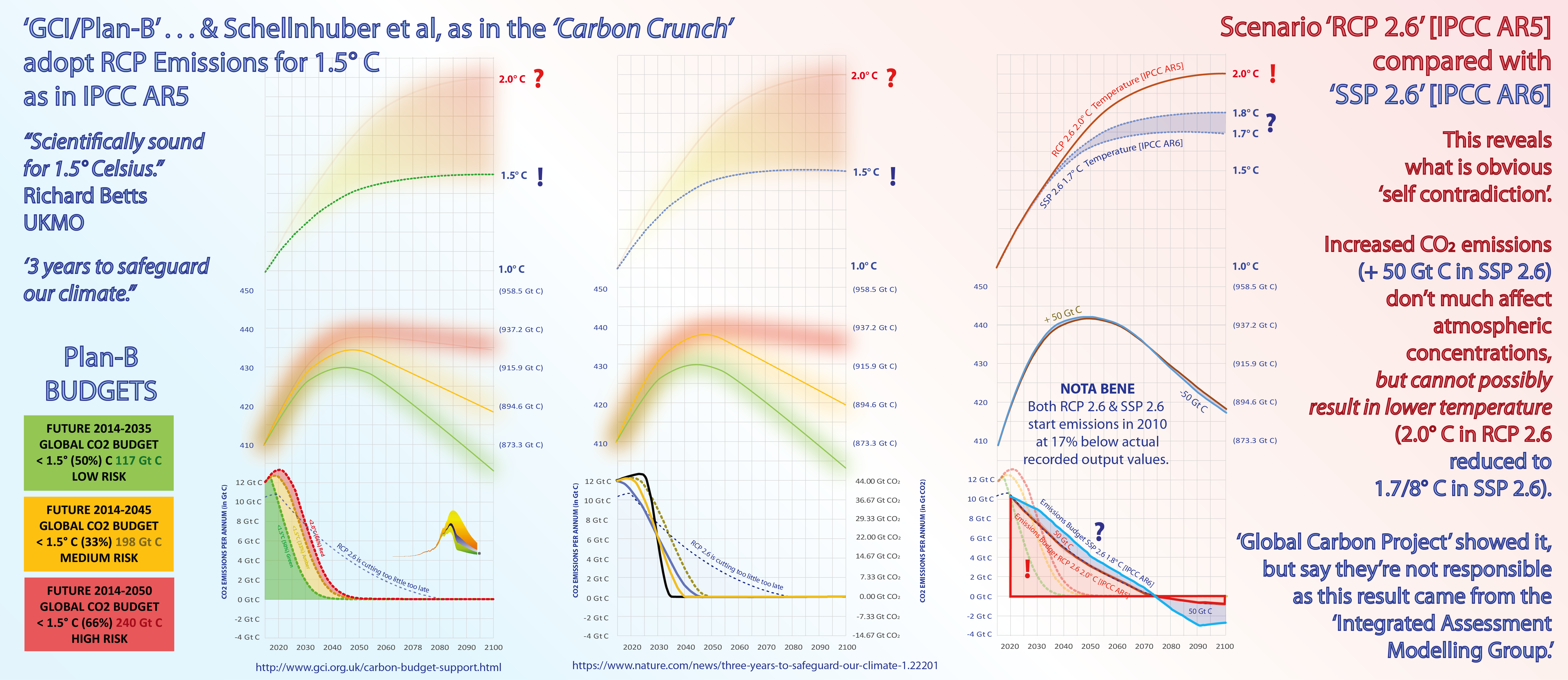A Judicial Review of HMG's Under-Ambition against the Climate Act & the Paris Agreement

In November 1997 at COP-3
At COP-3 in Kyoto Japan in December 1997 an impressive international consensus emerged
in favour of C&C in the final debate.
After eight years of C&C-focused intervention, this was a welcome development though the UK Government stayed out of it.
This is ironic as in 2008, based on the global C&C methodology, the UK climate act became law made a commitment to reduce emissions by 80% by 2050.
From 1989 until now, an active path has been trod to the Paris Agreement at COP-21 requiring the UK Government to revise that target downwards.
Without success, pressure has mounted on the UK Government to improve their carbon reduction
target leading finally to this Judicial Review.
This whole story is based on 'careful thought' & 'principled decision-taking', balancing conservation & economic interest (& simply closing the gap between the legal & the logical).
So why is that the UK Government still refuses to align its carbon reduction target from the UKCA with the Paris Climate Agreement (it won't last).
**************************************************************
Pictured above are some of the co-plaintiff's in this suit. Please support Plan B and the co-plaintiffs in this application for a Judicial Review.
It is requested precisely because of the UK Government's refusal to revise and strengthen its carbon reduction target.
Bindmans are the solicitors
Jonathan Crow QC is the lead barrister
**************************************************************
The UK Government is a signatory to the Paris Agreement.The case is being brought against Greg Clark the Secretary of State for BEIS
BEIS is the Government's Department of Business, Environment and Industrial Strategy, which absorbing DECC in July 2016, has taken over on this matter.
Plan B ask inter alia what is the point of the UK claiming 'global leadership' with an example that encourages all other parties to emulate an 80% emissions cut
by 2050, when the need is there to get a 100% cut globally by 2035 for at least a 50% chance of staying around 1.5° C, as per the Paris Agreement of 2015?
The fact of the matter is that the government has not changed its target since 2008 when the UK Climate Act became law. The inexplicable part of this is it remains true,
though realization of the rates of climate change we are now caught in, as reflected in the Paris Agreement, are faster and more dangerous than was understood in 2008.
**************************************************************
In November 2017 Plan B Earth seeks a JUDICIAL REVIEW of UK Government's failure to match the requirements of the Paris Climate Agreement
- Letter from Solicitors Bindmans, acting for Plan B, to the Secretary of State (26 09 2017)
challenging the UK Government about its under-performance on climate change. - Press release from Plan B (26 09 2017)
- Government response (24 10 2017) saying the case being brought will be, 'vigorously resisted'.
- As a consequence (08 12 2017) an application to the Courts has now been served.
Underlining 'urgency' and the need for legal action.
In December 2017, Jeremy Mathis, Director of NOAA's Arctic Programme said, "the environment is changing so quickly
. . . there is an almost runaway effect. We can't quite get a handle on what this new state is going to look like."
Prof Sir David King the UK Government's former chief scientist and then FCO-based
UK 'Paris negotiator' told the IEA in January 2016, 'we face a looming catastrophe'.
Prof King says the current government goal - an 80% emissions cut by the same date - is "too weak to protect
the climate".
He told BBC News the government knew the 80% target cut behind that plan was too weak.
Some 18 months ago, Environment Secretary Andrea Leadsom promised a 100% emissions reduction to keep the UK on track
with its obligations under the 2015 Paris climate deal. But ministers have failed to enshrine that 100% cut within the Climate Change Act.
He has supported action on this scale since his presentation to the IEA in 2016.
So he supports this legal case forcing ministers to shrink carbon emissions to zero.
"This is crazy," Prof King told the BBC.
"The government knows very well what needs to be done, but it isn't doing it.
If it takes legal action to force ministers to behave properly, then so be it, I'll support it.
**************************************************************
Where Plan B's analysis of the 'carbon contraction' rates needed to be 'Paris Compliant' comes from.
Future carbon budget integrals to meet the temperature targets in the 'Paris Agreement' come from the IPCC AR5 Synthesis Report page 64 table 2.2.

The international distribution of the global
budgets 1750-2050 are derived from data published by CDIAC.
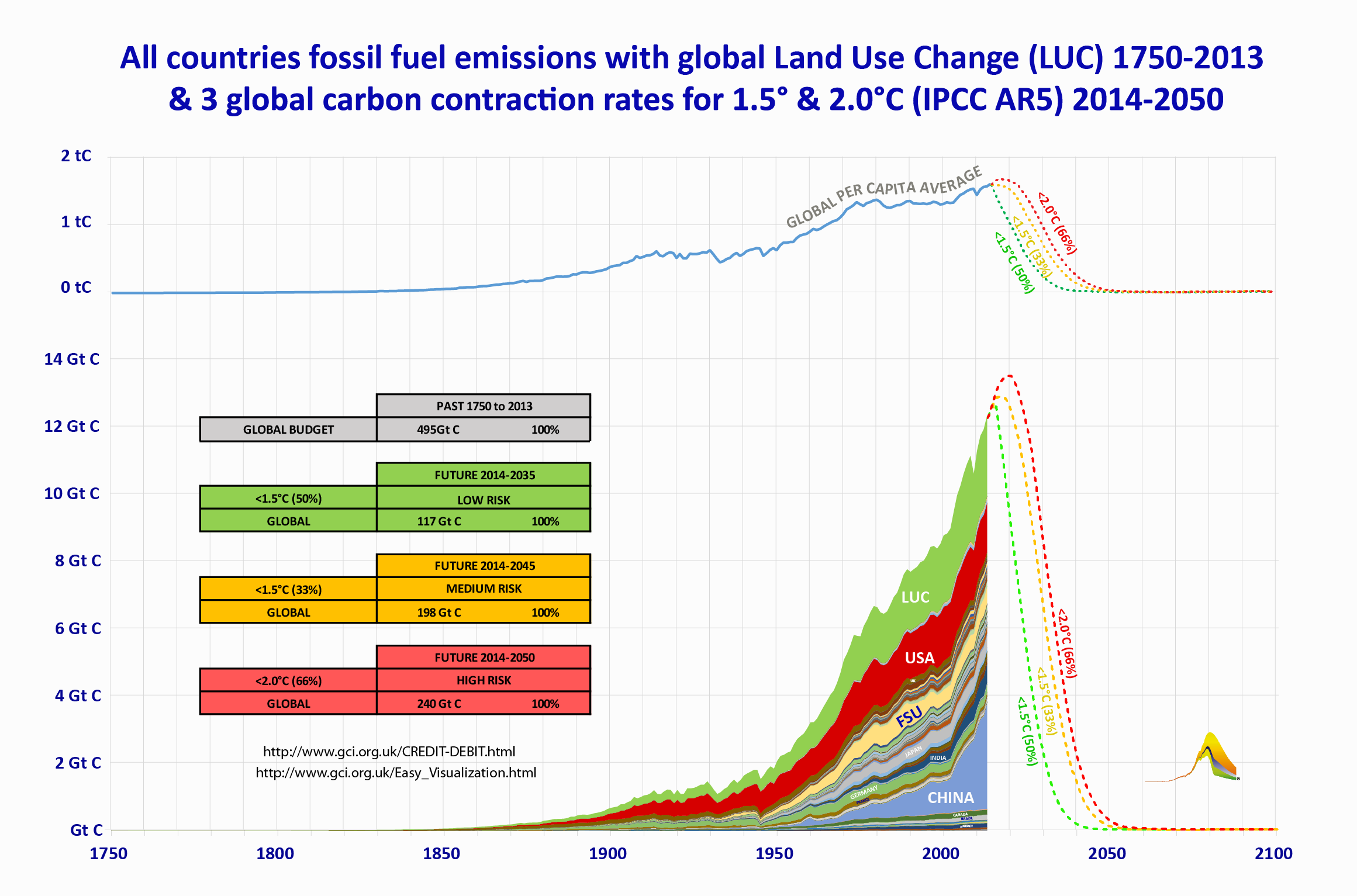
From this - whichever we draw it - it is clear that Plan B's case shows that the UK Government's response to the Paris Climate Agreement is inadequate.
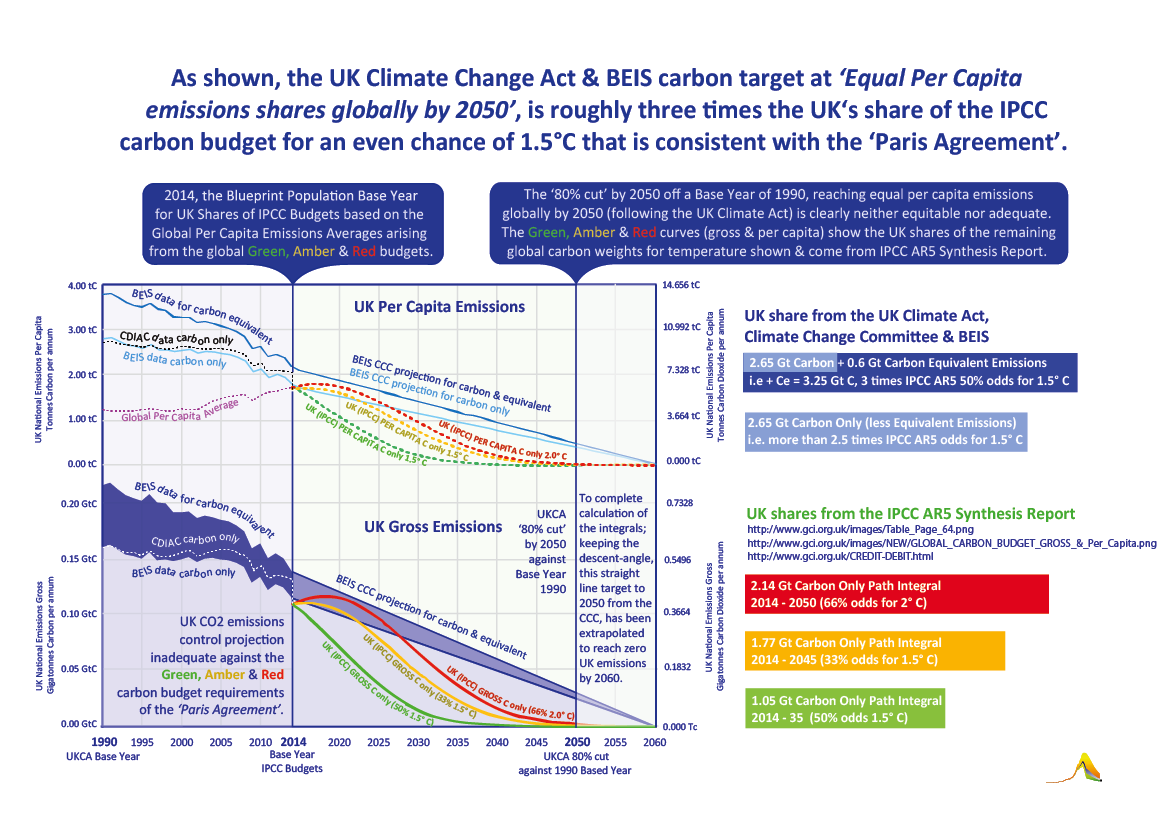
A detailed comparison of the UK Government's future Carbon Budget with the UK Carbon Budget from Plan B is here
Another detailed comparison of the UK Government's future Carbon Budget with the UK Carbon Budget from Plan B is here
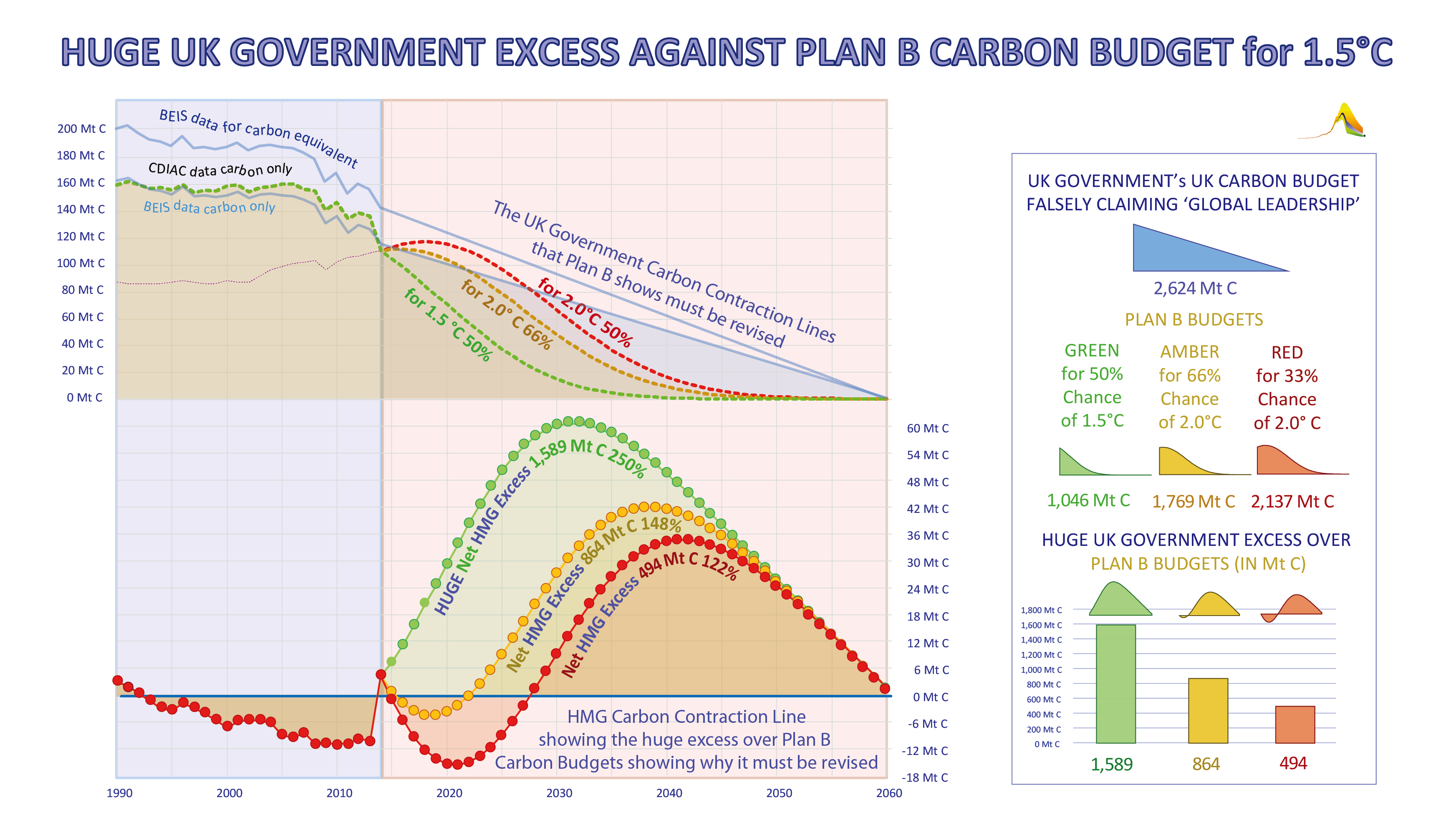
This is a deliberate initiative in the common interest, to avoid what Sir David King at the IEA called the 'looming climate catastrophe' that lies ahead if we don't organize, make & complete an international programme of GHG emissions control that is adequate to that purpose.
**************************************************************
These are no longer 'scientific' but 'political' questions needing logical answers and as necessary, judicial decisions to re-inforce them.
If we are to have any chance of global success in this effort to achieve 'Paris/UNFCCC-Compliance', this is obviously true as 'uncertainty' simply extends malaise.
Moreover, there is a massive and asymmetrical history of CO2 emissions from fossil fuel burning globally.
Here is the All Country CREDIT DEBIT historical account 1750 until the present.
It is clearly futile for the perpetrators of climate change to try and further ignore this matter seeking to divert attention onto India and China.
In the specific case of the UK, this carbon-indebtness is clearly set out as follows: -
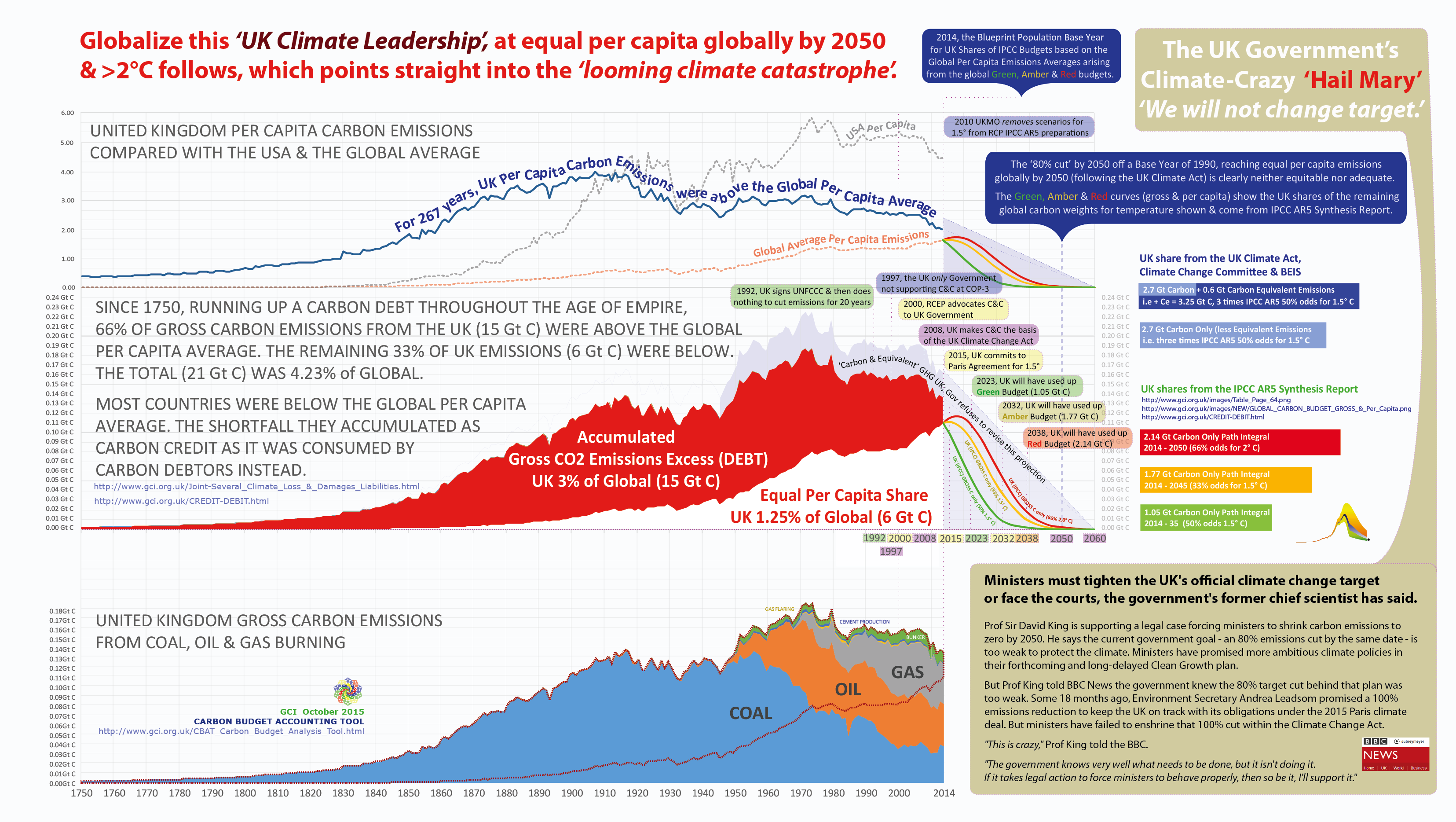
The UK Government is really quite out of touch with precautionary global science and matters of international climate debt and equity.
Internationally detailed all Country Climate CREDIT & DEBIT covering the years 1750 - 2050
A more extended comparison of the IPCC's SRES to RCP story
is here
Sir David King said that Schellnhuber et al had changed their carbon budget recommendations to equal Plan B carbon budgets for 1.5° C (see here) after he had shown them CBAT Domain One. The scale-accuracy of the carbon-budget integrals for 1.5° C (& not 2.0° C) from Plan B and Carbon Crunch has been corroborated by Richard Betts of the UKMO & not the SSP 2.6.
